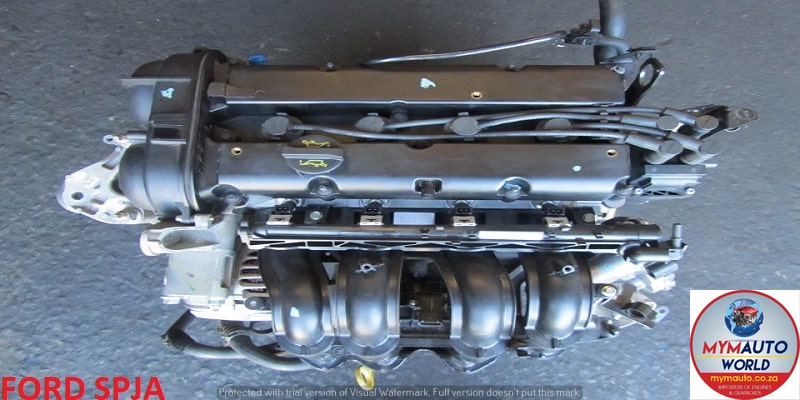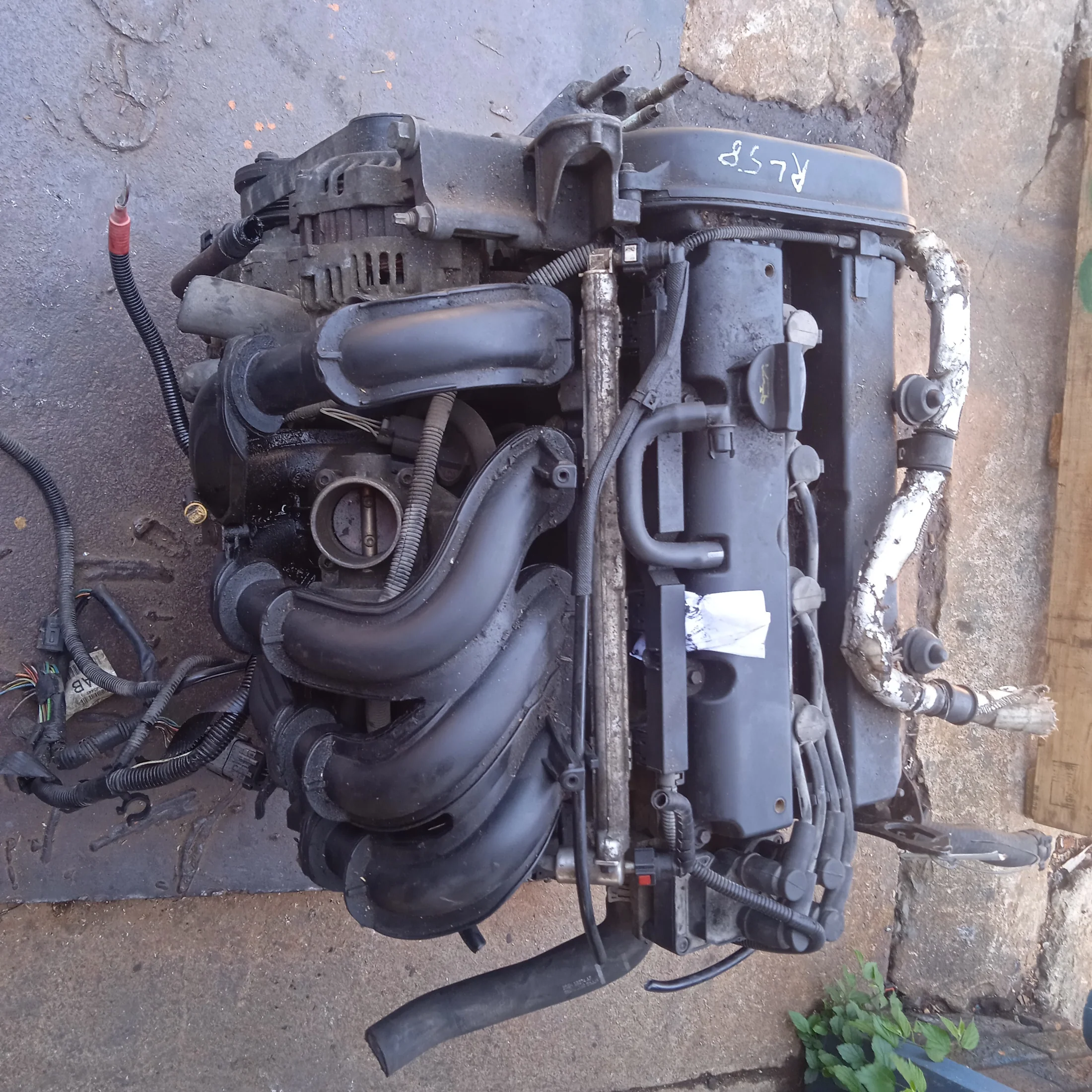The Future of Engines: Advancements Driving Sustainable Power Solutions
As the automotive market navigates the vital transition in the direction of sustainability, the future of engines is increasingly defined by groundbreaking advancements. Electric engine innovations, alongside encouraging advancements in hydrogen gas cells and biofuels, are improving the landscape of power solutions.
Electric Engine Dope
The evolution of electric engine growths symbolizes a crucial shift in the aerospace and automotive markets, driven by the immediate demand for lasting alternatives to fossil fuels. This shift is characterized by substantial developments in battery technology, power electronics, and electrical motor design, which jointly enhance the effectiveness and efficiency of electric engines.
Current developments have brought about the creation of lighter, a lot more energy-dense batteries, such as lithium-silicon and solid-state batteries, which assure longer ranges and shorter billing times. In addition, renovations in electrical motor efficiency, such as using irreversible magnets and progressed cooling systems, enable electrical engines to run efficiently under differing conditions. These enhancements not only improve vehicle performance but likewise add to a reduction in total power intake.
Moreover, the combination of sophisticated software program algorithms has enhanced power monitoring in electric cars, enabling regenerative braking and predictive billing techniques. As suppliers significantly embrace electrical propulsion, the aerospace and automotive sectors are observing a standard shift towards greener technologies. This evolution not only meets governing demands however additionally aligns with consumer preferences for eco-friendly transport remedies, solidifying electrical engines as a cornerstone of future lasting wheelchair.
Improvements in Biofuels
As the auto and aerospace sectors progressively focus on sustainable power sources, improvements in biofuels become a corresponding service to electrical engines. Biofuels, derived from organic materials such as crops, waste, and algae, provide an ingenious opportunity for reducing greenhouse gas discharges and reliance on fossil fuels.
Current research study has actually concentrated on boosting the efficiency and sustainability of biofuel manufacturing. Second-generation biofuels make use of non-food feedstocks, minimizing competition with food supply and decreasing environmental influence. In addition, developments in artificial biology have enabled the design of microorganisms to create biofuels better, bring about greater yields and reduced production expenses.
Furthermore, the development of drop-in biofuels permits seamless assimilation right into existing infrastructure, allowing a smoother change for sectors typically based on nonrenewable fuel sources. ford fiesta engine. These gas can be made use of in current engines without modifications, promoting their fostering throughout different markets
Investments in biofuel innovation, together with supportive plans, are important to drive advancement and scalability. As the international area looks for to deal with climate adjustment, biofuels offer a pragmatic, prompt service that straightens with the overarching objective of sustainability in transport and aviation.
Hydrogen Fuel Cell Modern Technology
An expanding number of researchers and business are checking out hydrogen gas cell technology as a viable alternative to conventional power resources in transport and power systems. This technology converts chemical power from hydrogen right into electrical power via an electrochemical response, with water as the only byproduct, making it an eco-friendly alternative.
The core of hydrogen fuel cells is the gas cell pile, where hydrogen particles are split into protons and electrons. The flow of electrons produces electrical energy, while protons relocate via a membrane to integrate with oxygen from the air, creating water. This procedure results in high efficiency and low exhausts, positioning hydrogen gas cells as an essential gamer in the change to sustainable energy.
Substantial advancements have been made in boosting the resilience and efficiency of fuel cells, together with lowering prices via innovative manufacturing methods. The advancement of hydrogen production techniques, such as electrolysis powered by renewable energy sources, boosts the sustainability of the overall system. As framework for hydrogen refueling expands and manufacturing techniques end up being extra efficient, hydrogen fuel cell innovation holds great promise for decarbonizing numerous markets, including durable transportation and stationary power generation.
Crossbreed Equipments and Their Influence
Crossbreed systems represent a considerable advancement in sustainable engine modern technology, combining typical interior combustion engines with electrical propulsion to enhance power performance and reduce exhausts (ford fiesta engine). This twin strategy allows automobiles to utilize both source of power, allowing greater versatility in power consumption and reducing reliance on fossil gas

Along with environmental benefits, hybrid systems use customers a practical transition towards totally electrical vehicles. They relieve range stress and anxiety by incorporating the comfort of gas with the advantages of electrical propulsion, making them an attractive alternative for a wider audience. As makers purchase hybrid technology, the growth of advanced battery systems and light-weight products remains to improve performance. On the whole, crossbreed systems represent a crucial step in the direction of attaining sustainable transport and attending to the urgent requirement for eco pleasant power solutions.
The Function of AI in Engine Style
Leveraging innovative algorithms and equipment learning methods, the auto sector is increasingly incorporating synthetic knowledge (AI) right into engine design procedures. AI improves the effectiveness and effectiveness of design by examining vast datasets to recognize optimum configurations and performance criteria. This ability permits engineers to mimic different operating problems and forecast engine habits under numerous scenarios, considerably decreasing the time and cost connected with typical prototyping techniques.
Furthermore, AI assists in the growth of advanced materials and burning procedures customized for sustainability. By optimizing fuel performance and reducing exhausts, AI-driven layouts align with global campaigns targeted at decreasing the carbon impact of automotive engines. Device knowing formulas can likewise forecast upkeep needs, leading to boosted reliability and durability of engine parts.
Moreover, AI contributes in the assimilation of electrification technologies, such as hybrid systems, where it can enhance battery management and power healing procedures. As the market moves towards more lasting power remedies, the role of AI in engine layout ends up being increasingly crucial, driving development and improving the efficiency of future engines. Inevitably, the collaboration in between AI and engine design proclaims a brand-new age of smarter, cleaner, and extra reliable automotive modern technologies.

Conclusion
To conclude, the future of engines is being formed by a convergence of cutting-edge modern technologies that focus on sustainability. Electric engine innovations, biofuel developments, hydrogen fuel cells, and hybrid systems jointly add to a significant decrease in emissions and environmental effect. Additionally, the combination of artificial intelligence in engine layout enhances performance and efficiency. These why not try here transformative remedies highlight a dedication to producing a cleaner, a lot more sustainable automotive landscape, ultimately benefiting both culture and the setting.
Electric engine advancements, together with promising advancements in hydrogen gas cells and biofuels, are reshaping the landscape of power services. Additionally, improvements in electric motor effectiveness, such as the use of long-term magnets and advanced cooling down systems, make it possible for electric engines to operate properly under differing problems. By enhancing gas effectiveness and decreasing emissions, AI-driven styles line up with worldwide like this campaigns aimed at minimizing the carbon impact of auto engines. As the industry moves in the direction of even more lasting power solutions, the function of AI in engine design ends up being significantly essential, driving advancement and improving the performance of future engines. Electric engine developments, biofuel developments, hydrogen fuel cells, and hybrid systems collectively add to a significant reduction in exhausts and environmental effect.
Comments on “Enhance Your Driving Experience with a Reliable Ford Fiesta Engine”